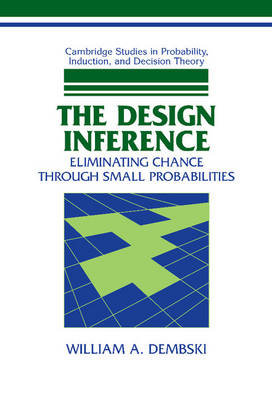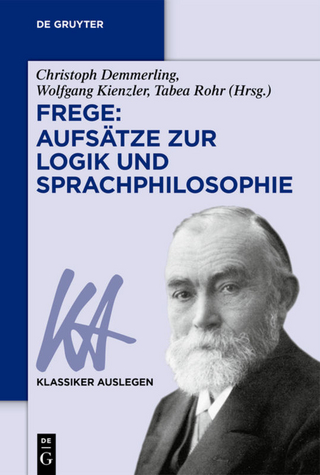
The Design Inference
Eliminating Chance through Small Probabilities
Seiten
1998
Cambridge University Press (Verlag)
978-0-521-62387-2 (ISBN)
Cambridge University Press (Verlag)
978-0-521-62387-2 (ISBN)
This challenging and provocative 1998 book shows how incomplete undirected causes are for science and breathes new life into classical design arguments. It will be read with particular interest by philosophers of science and religion, by other philosophers concerned with epistemology and logic, probability and complexity theorists, and by statisticians.
The design inference uncovers intelligent causes by isolating their key trademark: specified events of small probability. Just about anything that happens is highly improbable, but when a highly improbable event is also specified (i.e. conforms to an independently given pattern) undirected natural causes lose their explanatory power. Design inferences can be found in a range of scientific pursuits from forensic science to research into the origins of life to the search for extraterrestrial intelligence. This challenging and provocative 1998 book shows how incomplete undirected causes are for science and breathes new life into classical design arguments. It will be read with particular interest by philosophers of science and religion, other philosophers concerned with epistemology and logic, probability and complexity theorists, and statisticians.
The design inference uncovers intelligent causes by isolating their key trademark: specified events of small probability. Just about anything that happens is highly improbable, but when a highly improbable event is also specified (i.e. conforms to an independently given pattern) undirected natural causes lose their explanatory power. Design inferences can be found in a range of scientific pursuits from forensic science to research into the origins of life to the search for extraterrestrial intelligence. This challenging and provocative 1998 book shows how incomplete undirected causes are for science and breathes new life into classical design arguments. It will be read with particular interest by philosophers of science and religion, other philosophers concerned with epistemology and logic, probability and complexity theorists, and statisticians.
William A. Dembski is Senior Fellow at the Discovery Institute's Center for Science and Culture in Seattle, and Carl F. H. Henry Professor of Theology and Science, Southern Seminary, Louisville.
Preface; Acknowledgments; 1. Introduction; 2. Overview of the design inference; 3. Probability theory; 4. Complexity theory; 5. Specification; 6. Small probability; 7. Epilogue; Notes; References.
| Erscheint lt. Verlag | 13.9.1998 |
|---|---|
| Reihe/Serie | Cambridge Studies in Probability, Induction and Decision Theory |
| Verlagsort | Cambridge |
| Sprache | englisch |
| Maße | 152 x 229 mm |
| Gewicht | 520 g |
| Themenwelt | Geisteswissenschaften ► Geschichte |
| Geisteswissenschaften ► Philosophie ► Logik | |
| Mathematik / Informatik ► Mathematik | |
| Naturwissenschaften | |
| ISBN-10 | 0-521-62387-1 / 0521623871 |
| ISBN-13 | 978-0-521-62387-2 / 9780521623872 |
| Zustand | Neuware |
| Haben Sie eine Frage zum Produkt? |
Mehr entdecken
aus dem Bereich
aus dem Bereich
ein Gegenentwurf zum kurzfristigen Denken : so werden wir zu den …
Buch | Hardcover (2023)
REDLINE (Verlag)
18,00 €


